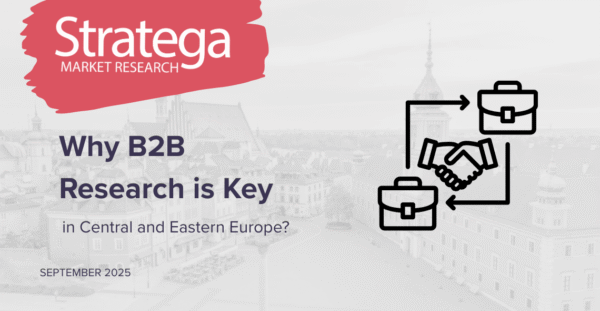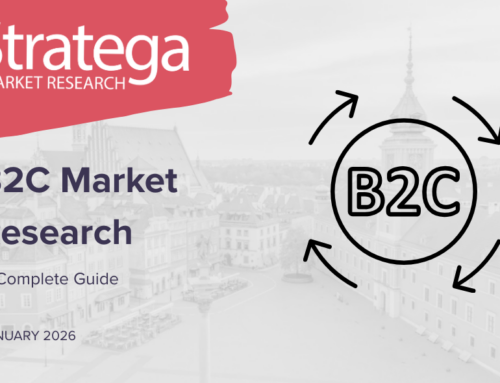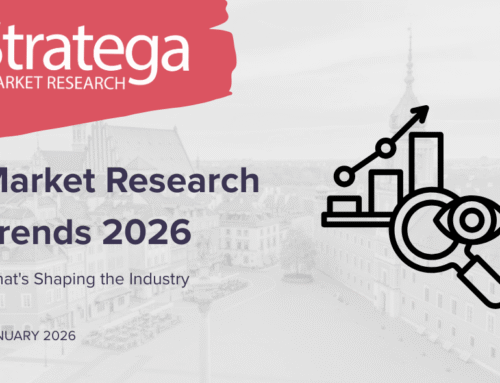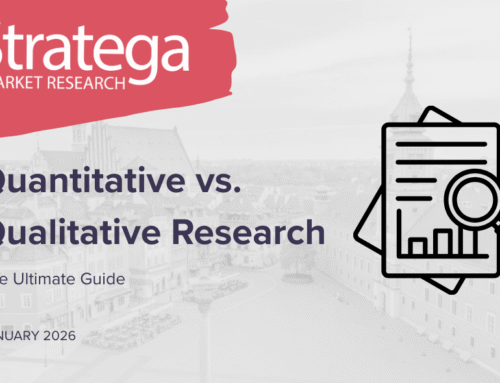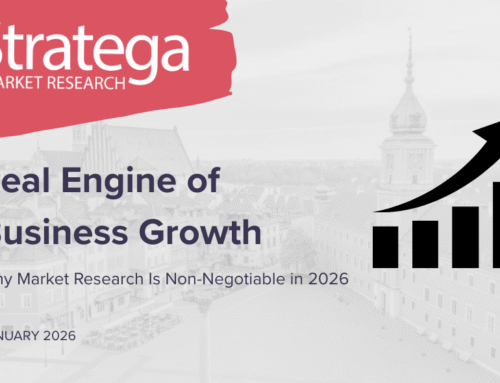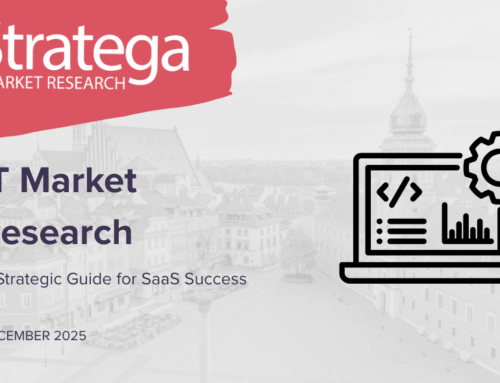It’s easy to assume that all business clients make decisions the same way. Nothing could be further from the truth. In CEE region, all B2B choices are shaped by local habits, economic conditions, and the change factors that make each market unique. At Stratega CEE, we see this every day – whether it’s corporate offices in Warsaw or factories near Bucharest.
Why? Because relying on assumptions is usually extremely costly. A global logistics company entering Poland learned this the hard way. Research revealed that local procurement managers valued reliability and on-time delivery more than price discounts. Without this insight, the company would have misjudged its market positioning and lost its competitive edge from the start.
Poland: The B2B Test Market
Poland is one of the largest players in the region and often the first stop for multinational companies entering Central and Eastern Europe. Therefore, B2B market research in Poland serves as a key reference point for organizations expanding into the region.
Companies in Warsaw, Kraków, and Wrocław are modern and digitally advanced, yet personal relationships and trust still play a crucial role.
Research shows two parallel realities. On one hand, decision-makers rely on systems, KPIs, and data.
On the other, final decisions are often guided by trust: “Will they be available when I need them most?” This combination of rational analysis and human factors makes Poland both a challenge and a benchmark for approaching B2B field across CEE.
Romania: Speed and Transformation
Romania definitely stands out in the CEE region. Since the country has been developing rapidly, it quickly adapts to change and readily embraces modern digital tools needed in B2B.
Key trends in 2025 that are visible in Romania and can be valuable for B2B businesses are:
– Tech-focused procurement – supplier evaluations often start online, and is fully automated sometimes
– Greater emphasis on ESG – younger managers expect solid proof of sustainable practices, not just claims.
– Generational handover – globally minded decision-makers bring international standards into negotiations.
For Western brands, the takeaway is clear: one-size-fits-all strategies don’t work in Central and Eastern Europe. Market research in Romania shows that the country rewards innovation and speed, while Poland values reliability and personal trust.
Beyond Poland and Romania: other Eastern European markets
It’s tempting to see the CEE region as a single market, but B2B research shows that differences between countries are significant:
• Hungary: Buyers are highly price-conscious but willing to test new solutions if the product or service benefits are clear.
• Czech Republic: Organizations are pragmatic and process-driven which means they value precision and dislike overselling.
• Slovakia: Similar to Czech Republic, though smaller companies tend to be slightly more flexible.
• Bulgaria: Business decisions often rely on relationships and trust, not just KPIs.
These differences show that an effective B2B marketing strategy in Eastern Europe requires adaptation to the local conditions of each market.
What’s Driving B2B Market Research in 2025
AI as assistant
AI tools now summarize interviews, scan for trends, and reduce manual labor. But what they can do is interpreting cultural nuance. When a Romanian buyer politely avoids saying “no,” only a human researcher can understand the meaning.
Hybrid approaches win
Businesses rarely rely on a single method. An online survey of procurement managers might be followed by phone interviews and WhatsApp check-ins. Busy executives only give small windows of time, so market research must adapt to that reality.
Privacy and trust as baseline
Confidentiality is critical. Discussing supplier evaluations or purchasing strategies is sensitive, so GDPR compliance is mandatory. In B2B research, especially in Eastern and Central Europe, trust between respondent and researcher often determines how candid the answers are.
ESG as a procurement filter
Sustainability has transformed from a PR buzzword to a dealbreaker. In 2025, suppliers without ESG compliance take a huge risk of being excluded early in procurement. In Poland, energy firms demand detailed environmental reports; in Romania, even mid-size companies are incorporating ESG requirements into contracts.
Local insight beats copy-paste
Global companies often try to apply a Western European playbook to CEE. It rarely works. A strategy successful in Germany might fail in Poland, where price sensitivity is different, or in Romania, where digital adoption is faster.
Key Industries Driving Demand for B2B Research
The growth of B2B market research in Europe and especially its eastern and central part is particularly strong in certain fields.
In IT&technology, vendors compete in AI, cybersecurity, and system integration. Research helps them understand evolving procurement criteria. In manufacturing businesses, supply chain disruptions have made reliability a top priority. Research shows how procurement teams assess supplier resilience. In logistics&transport buyers balance cost with speed and flexibility with cross-border trade on the rise. In finance&banking, research uncovers trust factors that influence vendor selection, as B2B services become digital. And lastly, in healthcare&pharma, post-pandemic procurement of medical equipment and technology requires insight into both compliance and business relationships.
Each sector faces unique challenges, but the most important conclusion is that B2B research helps prevent costly mistakes.
Market Research in Europe: Why CEE Is No Longer a Second Choice
For a long time, discussions about market research in Europe focused on Western hubs. Today, CEE has moved to the forefront.
Many companies now pilot research programs in Poland or Romania before expanding to Paris, Berlin, or London. Why? Because competition is fierce, and growth rates in CEE has outpaced much of Western European countries.
Want Local Insight You Can Trust?
If you’re planning market research in CEE, don’t rely on assumptions. Rely on a team that knows the markets firsthand. At Stratega CEE, our approach is personal, precise, and proven.
👉 Learn more about our Market Research Services CEE and let’s explore how we can support your growth in the region.
See You at ESOMAR Congress 2025
We’re excited to share our expertise at the upcoming ESOMAR Congress 2025, taking place at the Prague Congress Centre from 28 September to 1 October 2025. If you’re attending, let’s connect and talk about how local insight can drive better decisions in the CEE region and beyond.
